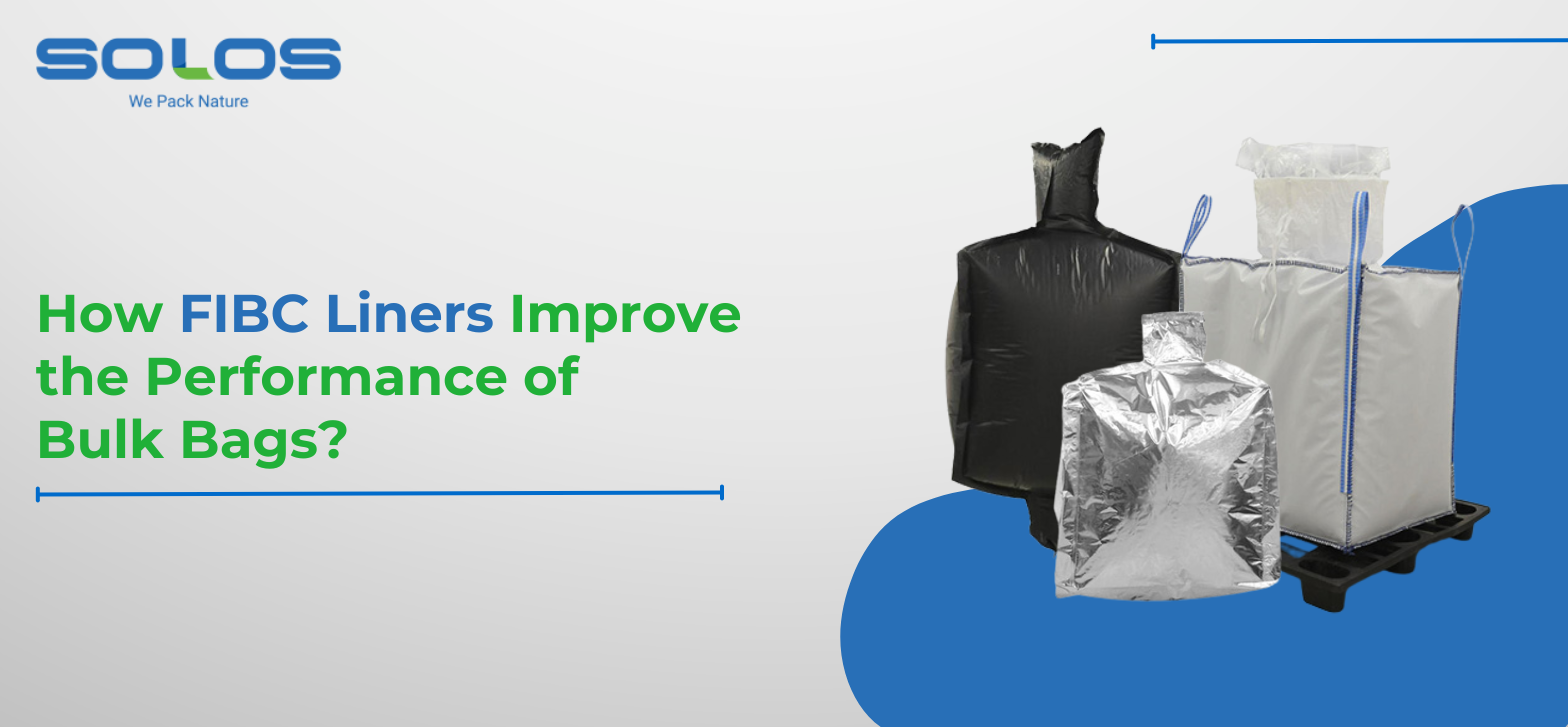How FIBC Liners Improve the Performance of Bulk Bags?

In industries where large volumes of raw materials are stored and transported, bulk packaging plays a critical role in ensuring product quality and safety. Flexible Intermediate Bulk Containers (FIBCs), commonly known as bulk bags, have become the go-to solution for cost-effective and efficient handling of powders, granules, liquids, and agricultural goods. However, not all bulk bags alone can guarantee maximum protection. This is where FIBC liners—also known as packaging liners—come in, significantly enhancing the performance, versatility, and reliability of bulk bags.
Why Do Bulk Bags Need FIBC Liners?
Bulk bags are typically made from woven polypropylene fabric, which is strong, durable, and capable of carrying heavy loads ranging from 500 kg to over 2000 kg. While these bags offer excellent structural integrity, they may not always provide sufficient protection against external factors like moisture, contamination, or oxygen exposure.
FIBC liners act as an additional protective layer inside the bulk bag, ensuring the contents remain uncontaminated, stable, and secure during storage and transportation. This dual-layer approach makes packaging more robust while extending the shelf life of sensitive products.
Key Ways FIBC Liners Improve Bulk Bag Performance
1. Moisture Protection
Moisture is one of the greatest threats to bulk materials such as powders, grains, chemicals, or agri-products. Even a small amount of humidity can cause:
- Clumping of powders and cement.
- Spoilage of agricultural produce like grains, rice, and pulses.
- Mold growth in food and organic products.
- Degradation of sensitive chemicals.
By acting as a barrier, packaging liners shield the product from external humidity and moisture penetration. This ensures that the material inside remains dry, stable, and safe for use.
2. Contamination Control
When storing food, fresh produce, or hazardous chemicals, contamination risks are high. The woven polypropylene fabric of bulk bags can sometimes allow fine dust or environmental pollutants to enter. FIBC liners prevent such risks by:
- Blocking dust, dirt, and airborne particles.
- Eliminating direct contact between the product and the bulk bag fabric.
- Reducing the possibility of microbial growth.
This makes liners especially valuable in industries that require strict hygiene and regulatory compliance.
3. Preserving Product Integrity
Certain products, like fresh produce, powdered chemicals, or agri-products, require precise storage conditions to maintain their quality. FIBC liners help in:
- Extending shelf life by reducing exposure to air and moisture.
- Preventing chemical reactions caused by oxygen.
- Maintaining consistency and stability during long-term storage or international transport.
For businesses, this translates to reduced wastage, fewer financial losses, and improved customer satisfaction.
4. Enhanced Safety in Handling Hazardous Materials
Static-sensitive materials like flammable powders pose a significant safety risk. Specialized conductive packaging liners (Type C liners) dissipate static electricity, preventing sparks that could otherwise lead to accidents. This adds a layer of protection not only for the product but also for workers handling these bulk bags.
5. Improved Operational Efficiency
Bulk handling becomes easier when the right FIBC liners are used. Form-fit liners, for instance, are shaped to perfectly fit inside bulk bags, allowing smooth filling and discharge without folds that trap material. Tubular liners provide seamless protection, reducing leaks and spills. These design improvements streamline operations, saving both time and labor costs.
Common Types of FIBC Liners and Their Applications
Form-Fit Liners
- Best for: Powders, food-grade products, chemicals.
- Advantage: Fit snugly inside bulk bags, minimize material wastage, and simplify filling and emptying
Tubular Liners
- Best for: Free-flowing powders and liquids.
- Advantage: Cylindrical shape ensures even protection and prevents leakage.
Aluminum Foil Liners
- Best for: Moisture-sensitive and oxygen-sensitive goods.
- Advantage: Offer a complete barrier against oxygen and humidity, perfect for fertilizers and high-value chemicals.
Conductive Liners (Type C)
- Best for: Flammable and static-sensitive materials.
- Advantage: Dissipate static electricity, ensuring safe handling.
Benefits of Using FIBC Liners in Bulk Packaging
- Regulatory Compliance: Many industries require certified packaging to meet safety and hygiene standards.
- Cost Efficiency: By reducing product spoilage and contamination, companies save money in the long run.
- Versatility: Suitable for industries like agriculture, food processing, and chemicals.
- Customization: Liners can be tailored to dimensions, discharge spouts, filling systems, and printing requirements.
Choosing the Right Packaging Liners for Your Industry
Every industry has unique storage and transportation challenges. For instance:
- Agriculture: Protects grains, seeds, and fresh produce from humidity and pests.
- Food & Beverages: Ensures hygiene and prevents contamination during storage.
- Chemicals: Guards against reactions caused by air or moisture exposure.
Working with a trusted bulk bag and liner manufacturer allows businesses to customize FIBC liners according to their needs, ensuring both product safety and operational efficiency.
Conclusion
FIBC liners are not just an add-on but an essential component that transforms bulk bags into high-performance packaging solutions. By offering protection against moisture, contamination, and environmental exposure, these packaging liners safeguard sensitive products while enhancing the efficiency of bulk handling.
Whether you are transporting agricultural produce, food ingredients, or chemicals, investing in the right liners ensures product integrity, compliance, and long-term cost savings. Partnering with a reliable supplier of bulk bags and liners, like Solos Polymers, is a strategic step toward smarter, safer, and more efficient packaging solutions.
